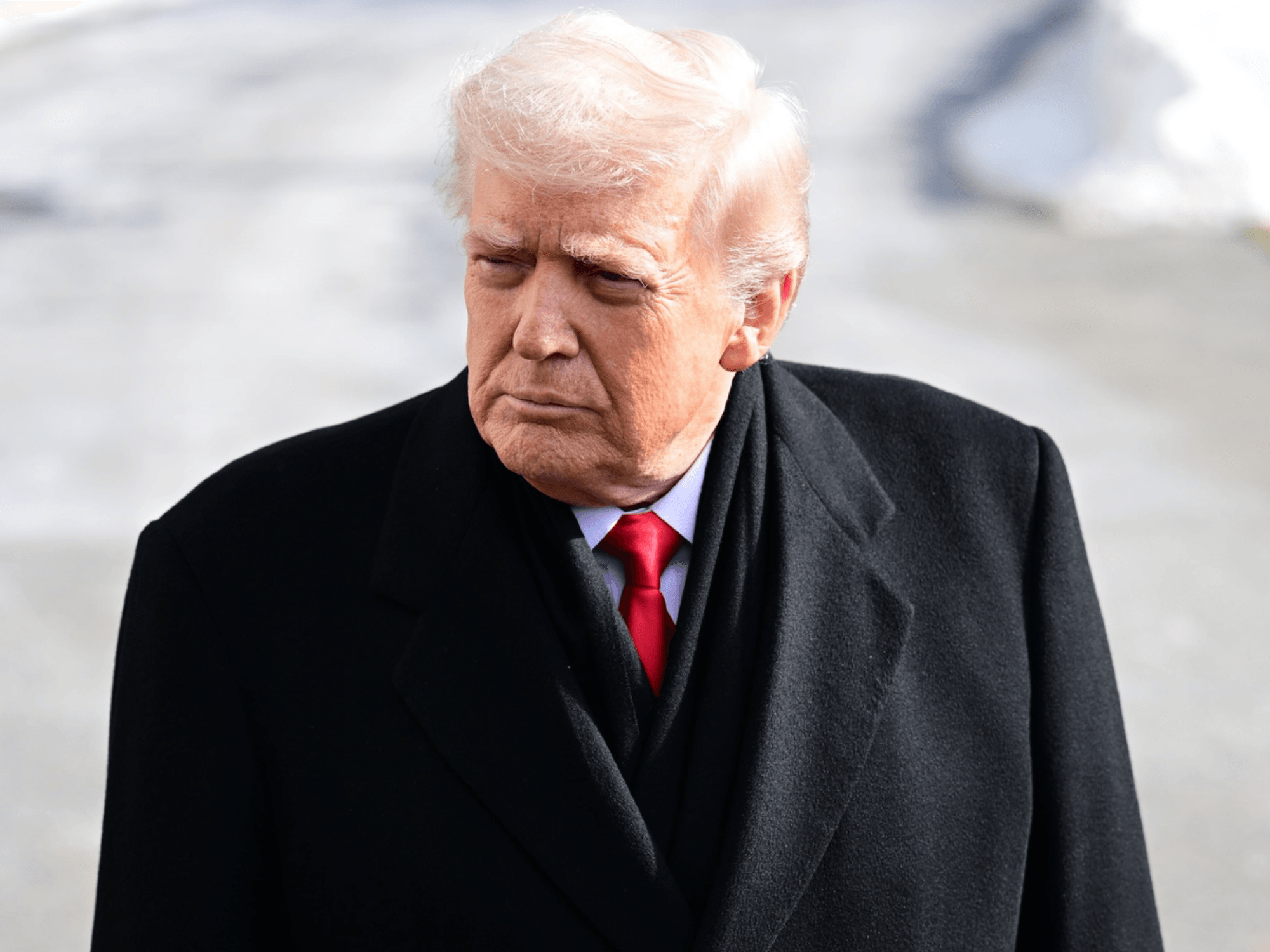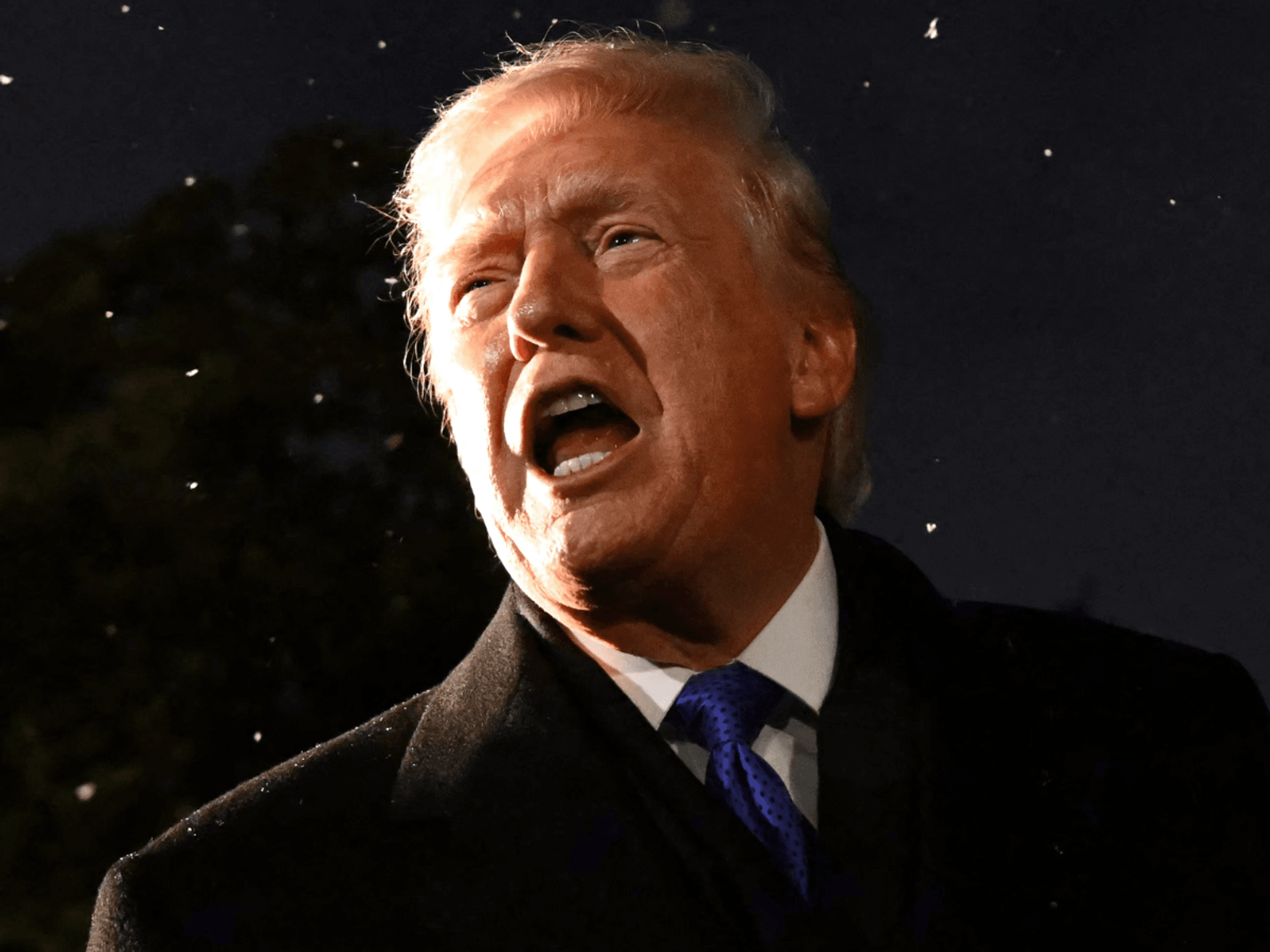British steel receives major boost in UK-EU deal as 'restrictive' red tape slashed
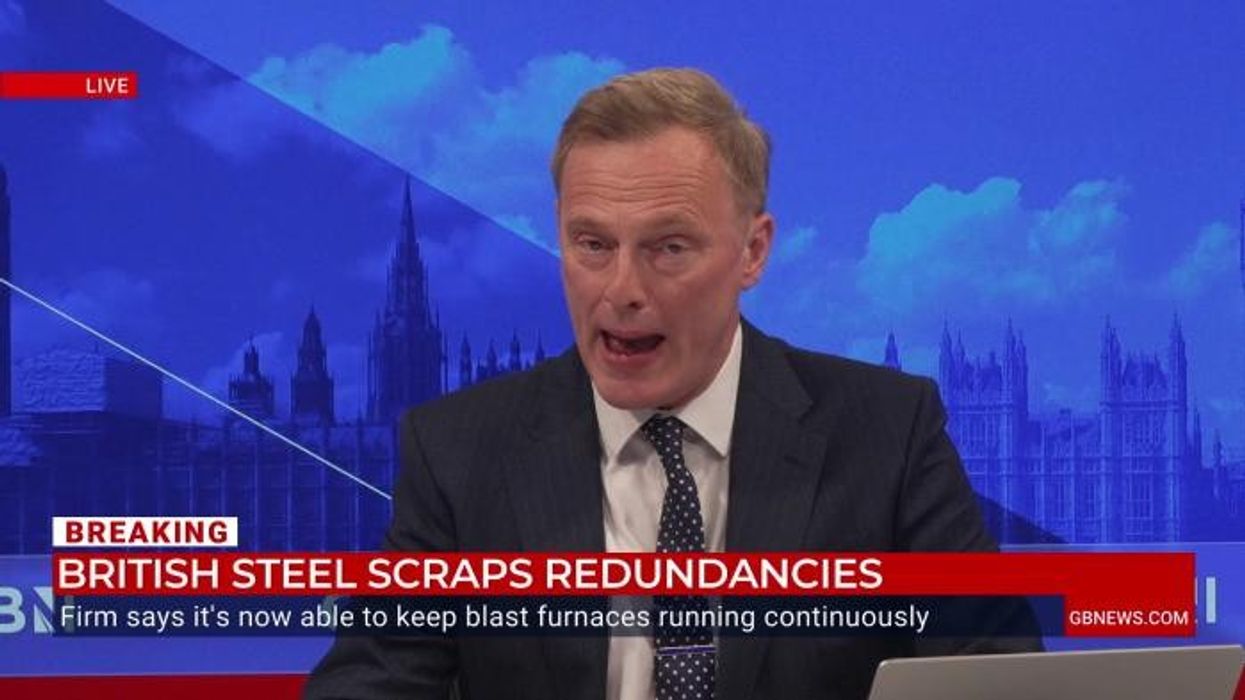
Sir John Redwood shares 'worry' for taxpayer as British Steel scraps redundancies: 'What we need is nationalisation!' |
GB News

The deal has been described as 'bespoke' between the UK and the bloc
Don't Miss
Most Read
Trending on GB News
British steel is set to receive a major boost as part of today's UK-EU deal, with a promise to slash "restrictive" regulations.
Under a "bespoke" agreement, any British Steel export will be protected from European Union rules and tariffs.
The Government claims that the deal will save UK steel £25million every year.
It comes after the White House and Downing Street have confirmed tariffs on British steel have been slashed to zero.
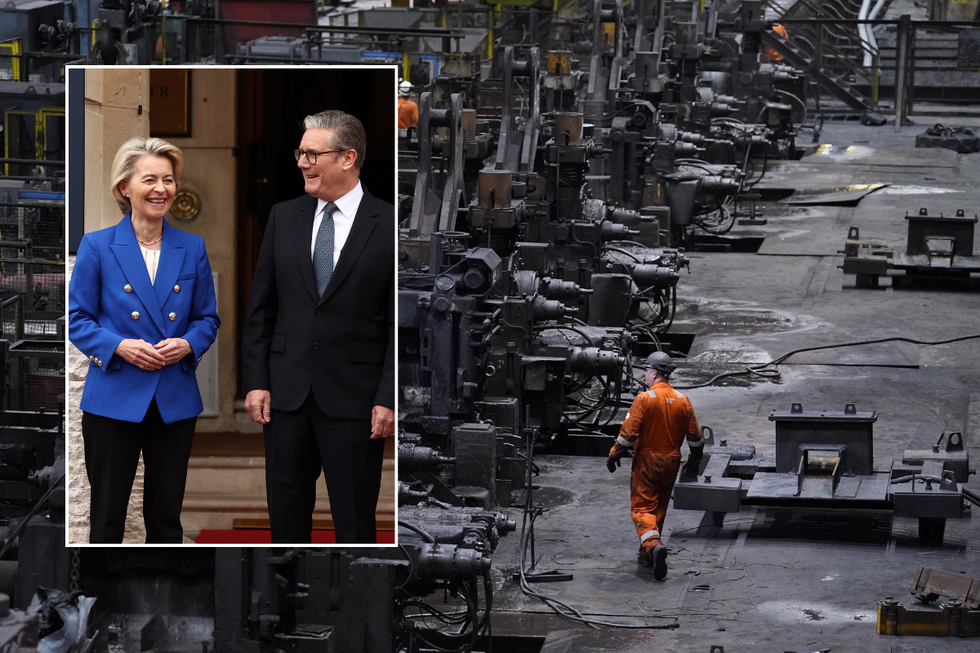
British steel manufacturing has been given a 'bespoke' deal
|PA
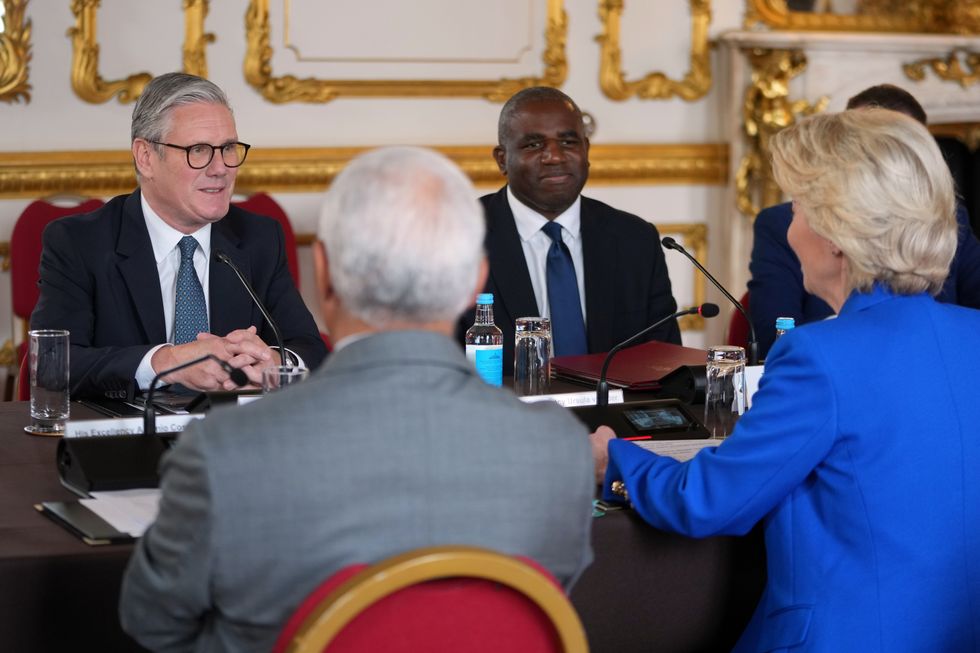
Sir Keir Starmer and Foreign Secretary David Lammy
|PA
The "reset" deal also respects the Government’s other red lines of not returning to the customs union or single market, officials said.
Starmer said: "We are agreeing a new strategic partnership fit for our times, providing real, tangible benefits on security, irregular migration, energy prices, agri-food, trade and more, bringing down bills, creating jobs and protecting our borders.
"We have delivered this progress through hard work together at every level, and teams have identified the areas where we can make a real difference while protecting our sovereignty and independence.
"I want to thank the negotiating teams on both sides, and I want to thank all of you for your engagement on this."
LATEST DEVELOPMENTS:
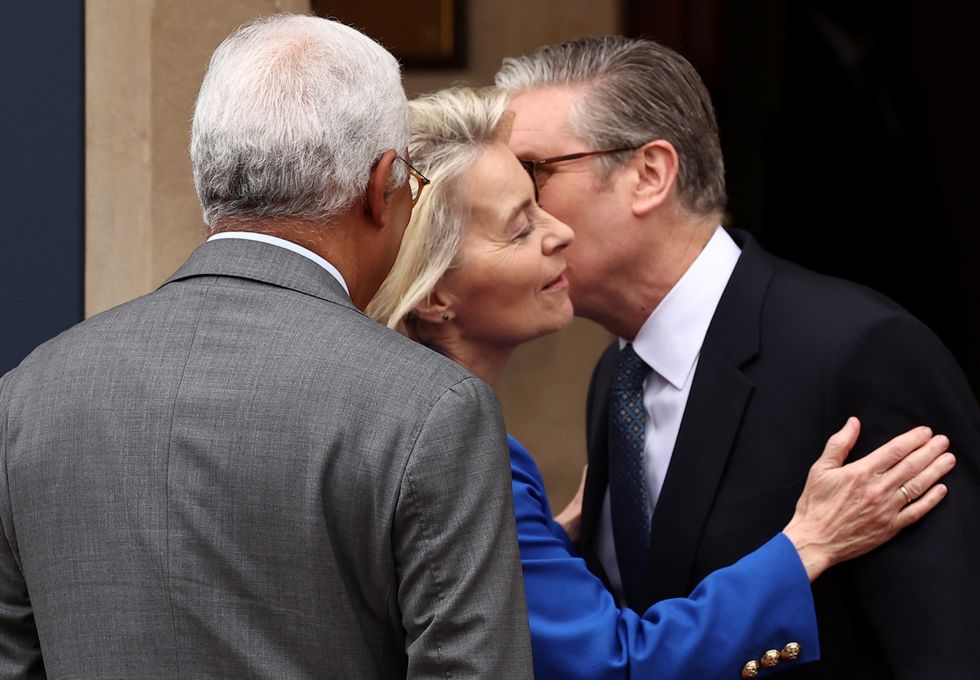
Britain's Prime Minister Keir Starmer kisses European Commission President Ursula von der Leyen
|REUTERS
But Conservative Party leader Kemi Badenoch said: "We’re becoming a rule-taker from Brussels once again.
"And with no details on any cap or time limits on youth mobility, fears of free movement returning will only increase. This is very concerning."
The deal as a whole requires a procedure known as "dynamic alignment" where the UK follows rules set by Brussels, in areas covering the SPS deal, emissions trading and potential co-operation in the electricity market.
That would mean the UK complying with rules over which, outside the EU, it would have a very limited influence.
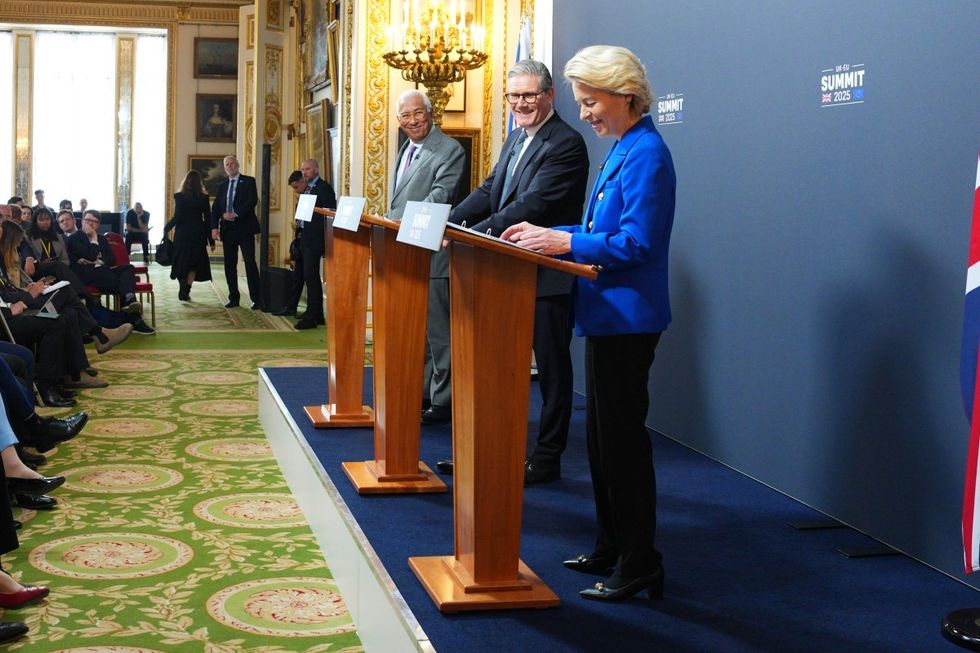 Keir Starmer, Ursula von der Leyen and Antonio Costa hold press conference after UK-EU Summit | PA
Keir Starmer, Ursula von der Leyen and Antonio Costa hold press conference after UK-EU Summit | PAThe acceptance of some form of youth mobility programme, allowing young EU citizens to live, work and study in the UK and vice versa, has been politically controversial because of the Government’s drive to cut net migration.
Officials insisted the scheme being proposed would not breach the Government’s red line of not allowing the return of free movement, pointing to similar deals with Australia and New Zealand.
More From GB News






